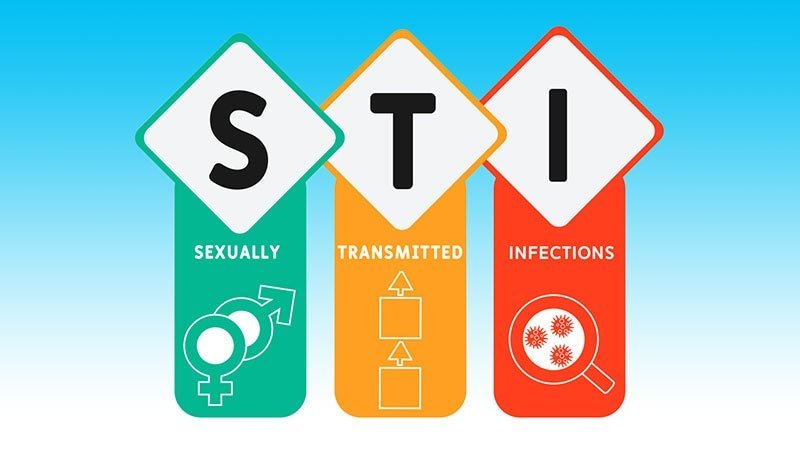Today, understanding and addressing sexually transmitted infections or STIs is crucial,
especially for women. This is because they may face unique challenges and health implications
if the ailment is not treated in time. However, education is the key to preventing them in the first place. So in this article, we walk
you through everything you must know. Keep reading!
Common STIs in Women
Let’s understand the most common STIs in women and their symptoms. Why? Well, knowing
the symptoms means you can ensure you get the necessary treatment from your healthcare
provider immediately.
Chlamydia
Chlamydia is a common STI that usually comes with mild or no symptoms. When symptoms
occur, they may include abnormal vaginal discharge, pain during urination, and pelvic
discomfort. Regular screenings are vital for early detection and prompt treatment to prevent
complications.
Gonorrhea
Gonorrhea is another prevalent STI, which may manifest with symptoms such as painful
urination, abnormal vaginal discharge, and pelvic pain. However, it can also be asymptomatic.
Early detection through testing is crucial for effective treatment, preventing the spread of the
infection, and averting complications.
HPV (Human Papillomavirus)
HPV is a widespread STI and it usually exhibits no symptoms. Some strains can cause genital
warts, while high-risk types may lead to cervical cancer. Regular Pap smears and HPV
vaccinations are essential for early detection, prevention, and women’s reproductive health.
Herpes
Herpes is a common sexually transmitted infection caused by the herpes simplex virus (HSV). It
comes with painful sores or blisters in the genital or oral regions. While antiviral medications can
manage symptoms, the virus is lifelong. Safe sex practices and open communication are vital
for the prevention and management of the emotional aspects of the condition. Regular medical
guidance helps individuals cope with herpes and reduce the risk of transmission.
STI Transmission and Risk Factors
Sexually transmitted diseases can occur due to high-risk behavior, which includes:
- ● Unprotected sexual intercourse, multiple sexual partners, and inconsistent condom use increase the risk of STI transmission.
- ● Substance abuse, including alcohol and drugs, can impair judgment, leading to riskier sexual behaviors and an increased likelihood of STI transmission.
- ● Initiating sexual activity at a young age may elevate the risk of STIs due to limited knowledge of safe sex practices and increased exposure.
- ● Lack of awareness about a partner’s sexual history and STI status contributes to the risk of transmission. Open communication is crucial.
- ● Infrequent or inadequate STI screenings, especially in high-risk populations, may result in undiagnosed infections and increased transmission rates.
- ● Pregnant women with untreated STIs can transmit infections to their infants during childbirth, so it is extremely important to undergo the right prenatal care and testing.
Impact on Reproductive Health
Sexually transmitted infections can impact reproductive health in women. So, it becomes all the
more crucial for you to keep an open eye. Also, conditions like Pelvic Inflammatory Disease may
lead to infertility, while STIs during pregnancy pose risks of vertical transmission to newborns.
Timely testing, treatment, and safe sex practices are crucial to protect reproductive well-being
and ensure healthy pregnancies.
STI Testing and Prevention
Routine gynecological check-ups, including STI screenings, are essential for asymptomatic
detection. As aforementioned, sometimes STIs may not come with any signs or symptoms.
Also, vaccination against STIs, like the HPV vaccine, adds an extra layer of protection.
Treatment for infected partners and the consideration of pre-exposure prophylaxis (PrEP)
contribute to comprehensive STI prevention, promoting overall sexual well-being. However, it is
always advised that you speak with your gynecologist for more information on how you can take
care of your sexual health.
Treatment and Management
Effective treatment of STIs involves prescribed antimicrobial therapies, routine follow-up care,
and partner notification to prevent reinfection. Addressing stigma and seeking emotional support
are also as integral as seeking treatment. Remember, holistic management helps individuals
cope with the impact of STIs on physical and mental well-being.
Final Word
When it comes to STIs in women, it is important to embrace a culture of regular screenings, safe
practices, and destigmatization. This helps everyone prioritize their sexual health and ensures
we live in a society that is informed, supportive, and proactive in preventing the spread of
sexually transmitted infections.





